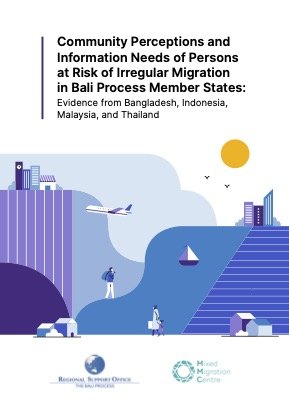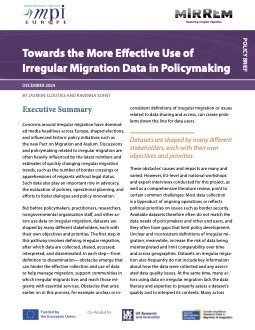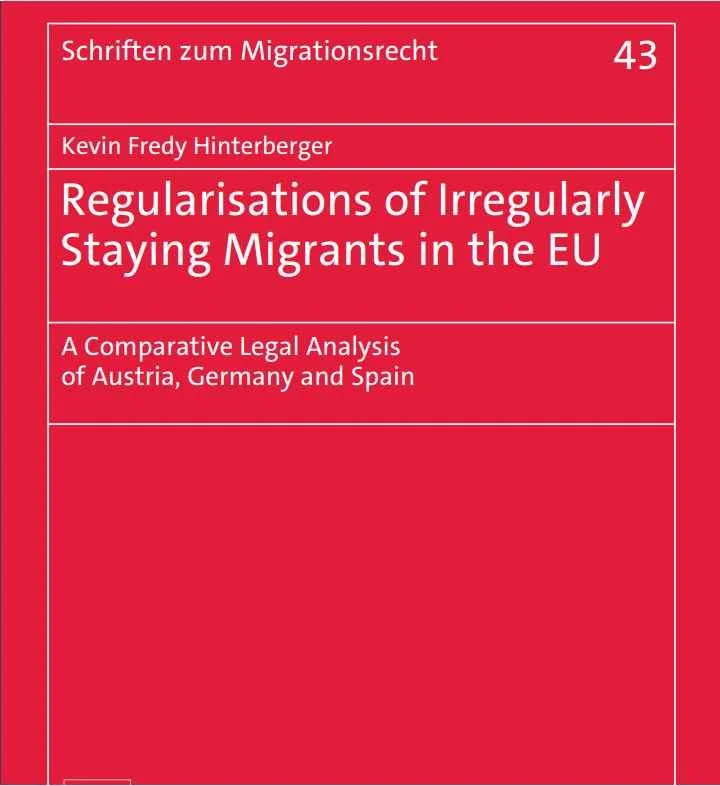By Fiona Robertson, Hui Yin Chuah, Abdullah Mohammadi, and Jennifer Vallentine
Migration within and towards Southeast Asia is a dynamic, mixed and enduring phenomenon influenced by historical, socio-cultural, economic, and geopolitical factors. From the Mekong region to movements between Indonesia and Malaysia, these migration practices are rooted in the region’s history and continue to evolve today.11 Significant events such as the large-scale displacement during the 1950s–70s Vietnam War, persistent systemic persecution of Rohingya, and the recent conflicts in Myanmar have accentuated the complexity of mixed migration in the region. Uneven economic development across Southeast Asia has further fuelled migration, attracting workers from lower-income countries to larger economies that offer greater opportunities. Additionally, climate change and environmental disasters have increasingly influenced migration patterns in the region.22 Combined, these factors contribute to both regular and irregular migration patterns, with porous borders and limited access to regular pathways exacerbating the prevalence of irregular migration. Bangladesh, one of world’s largest migrant sending countries, accounting for 7.4 million migrants living abroad as of 20203 and host to 989,585 Rohingya refugees as of July 2024, faces economic pressures and protracted displacement that drive many individuals towards irregular migration. The route from Bangladesh to Malaysia, particularly via boat across the Bay of Bengal, is a prominent irregular migration pathway. Similarly, Indonesia is a major migrant-sending country, especially of migrant workers, with 4.6 million migrants globally as of 2020.5 The Indonesia-Malaysia migration corridor, which 55 per cent of Indonesian migrants travelled in 2017, is characterised by a high degree of irregularity, with nearly half lacking legal status.6 Malaysia and Thailand, known for their relative economic and political stability, comparatively welldeveloped economies and established diaspora communities, are key destination countries in Southeast Asia. However, they face distinct challenges related to irregular migration. Economic opportunities, especially in low-skilled sectors, attract migrants from neighbouring countries across porous borders, making both countries host to large populations of migrants in irregular situations. As of 2017, the World Bank estimated that Malaysia hosts approximately 1.23–1.46 million migrant workers who are in irregular situations, predominantly from Bangladesh and Indonesia.7 Malaysia also hosts 190,370 registered refugees and asylum seekers, 88 percent of whom are from Myanmar.8 Thailand, which hosts 4.9 million migrants, serves as a primary destination for migrant workers from neighbouring Southeast Asian countries and a transit and destination point for asylum seekers and refugees.9 As of 2018, Thailand hosted approximately 811,437 migrant workers in irregular situations from Cambodia, Lao People’s Democratic Republic (Lao PDR), Myanmar, and Viet Nam,10 in addition to 86,539 refugees, including about 5,500 urban refugees, as of November 2024.11 Both Malaysia and Thailand are central to understanding the dynamics of irregular migration and the effectiveness of policies aimed at promoting safe and regular migration pathways. However, while there are estimates of the number of migrants in irregular situations across Southeast Asia, the often-covert nature of irregular migration makes accurate and timely estimations of its scale challenging. Despite their significant presence and contributions to the labour force and host societies, migrants in irregular situations face precarious conditions, including the constant threat of arrests, detention, and deportation due to their irregular status, as well as lack of access to education, healthcare, formal livelihoods, and sustainable housing. Additionally, those taking irregular pathways often encounter various protection risks along their journeys, including extortion, sexual and physical abuse, and trafficking in persons. Addressing the issue of irregular migration requires a multifaceted approach that recognises the diverse backgrounds and experiences of people on the move and addressing the motivations and drivers that compel individuals to undertake irregular journeys. A common narrative suggests that the lack of information about regular and safe migration pathways is a significant driver of irregular migration.12 This information gap, coupled with the lack of awareness of the risks associated with irregular journeys and limited accessible regular pathways, often compel many individuals to opt for irregular routes.13 In response, policy and programming initiatives have increasingly turned to information-dissemination and awareness-raising campaigns to mitigate irregular migration, as well as people smuggling and trafficking in persons. For example, between 2015 and 2019, European Union (EU) member states invested more than 23 million euros in 104 information and awarenessraising campaigns with the aim of reducing irregular migration towards Europe.14 In Bangladesh, the EU contributed 15.9 million euros to the five-year Prottasha project and a further 20 million euros in 2023 to Prottasha II15 which aims to promote sustainable reintegration and safe migration. The project includes awareness-raising about safe migration and the risks of migrating through irregular channels as a key component.16 In 2023, the Association of Southeast Asian Nations (ASEAN) and the EU launched a series of audio-visual products as part of the ASEAN Safe and Fair Migration Campaign, aimed at better protection of migrant workers in Southeast Asia.17 In fact, the focus on information dissemination is not new; it was highlighted as one of the key strategies in a 2012 United Nations (UN) background paper on good practices in preventing people smuggling.18 However, despite the increase in policies and programming surrounding information dissemination on migration, there remains a challenge in assessing their effectiveness in preventing and reducing the risks associated with irregular migration. Under the mandate of the Bali Process on People Smuggling, Trafficking in Persons and Related Transnational Crime (Bali Process), the 2023 Adelaide Strategy for Cooperation (the Strategy) recognises ‘Irregular Migration’ and ‘Public Information Campaigns’ as two key cooperation areas across the Bali Process structure. The Strategy welcomes initiatives that build the preparedness of Bali Process Member States to respond to irregular migration and calls for support to ‘members to develop and implement effective public information campaigns, raise public awareness and promote digital literacy, including among youth, to reduce irregular migration and promote safe and legal migration’.19 As key origin, transit, and destination points across the Bali Process region, the four selected Bali Process Member States—Bangladesh, Indonesia, Malaysia and Thailand—provide valuable contextual insights for the purpose of this assessment. Against this background, this assessment aims to provide evidence-based insights and actionable policy recommendations on the information needs and perceptions surrounding irregular migration in key Bali Process Member States in South and Southeast Asia. It will identify the nuanced information needs of people on the move, assess their perceptions and motivations, and evaluate the role of information in migration decision-making, facilitating the design of information campaigns targeted at changing behaviours of persons at risk of irregular migration. Additionally, the assessment will examine interventions designed to bridge information gaps behind irregular migration.
Bangkok: Regional Support Office of the Bali Process ; Geneva: Mixed Migration Centre, 2025. 67p.











